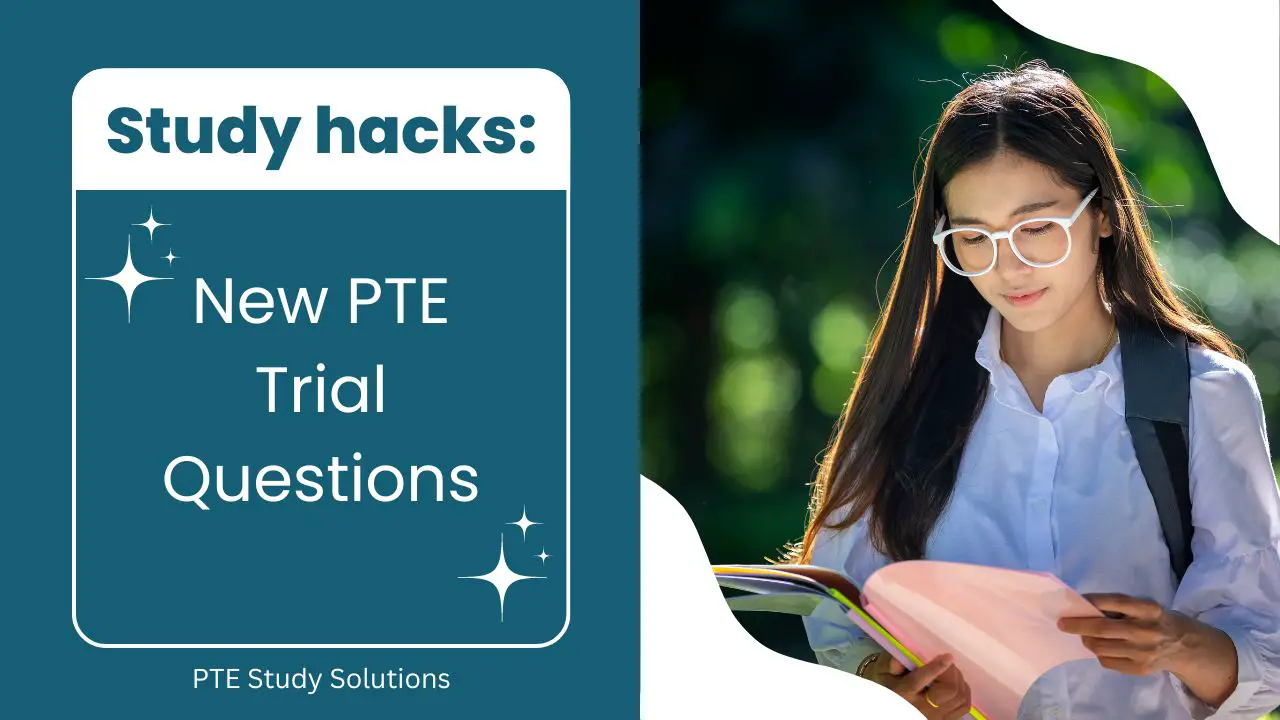Pearson has added new trial questions to the PTE (Pearson Test of English) Academic exam as part of its ongoing effort to improve the test’s precision and reliability. These trial questions are designed to collect data on candidate performance and question effectiveness, which will help Pearson refine the test. This blog examines the new trial questions, their influence on the PTE exam, and how students can prepare for them.
Book Your Test From Here >> Book Now
Why New Trial Questions?
Pearson’s addition of new trial questions reflects its commitment to continuous improvement. These questions are crafted to assess various skills and formats, providing insights into their effectiveness and the performance of candidates. The data gathered will guide Pearson in deciding whether to include these questions in the standard test format in the future.
Key Features of New Trial Questions
- Non-Scored Items: The new trial questions will not impact your overall PTE score, as they are included purely for research. They will appear randomly, so it’s important to approach them with the same seriousness as other questions.
- Variety of Formats: These questions may encompass different formats, such as speaking, writing, reading, and listening. For example, you might see new speaking tasks like “Respond to a Situation” or “Summarize Group Discussion.”
- Enhanced Skill Assessment: The trial questions aim to evaluate a wider range of skills, providing a more thorough assessment of English proficiency. They include real-world language scenarios that better reflect practical English use.
How to Prepare for the New Trial Questions
- Familiarize Yourself with New Formats: Keep up with the latest PTE preparation materials and resources that cover new question types. Practice with sample questions and mock tests that feature these new formats.
- Practice Flexibility: Develop the ability to quickly adapt to various question types. This adaptability will help you handle trial questions confidently. Engage with different question formats to build this flexibility.
- Focus on Core Skills: Even though the trial questions are new, they still assess fundamental English language skills. Enhancing your proficiency in speaking, listening, reading, and writing will help you effectively address any question type.
- Utilize AI-Powered Tools: Use AI-powered PTE preparation tools that offer personalized feedback and adaptive learning. These tools can pinpoint areas for improvement and provide targeted practice to boost your skills.
- Take Mock Tests: Regularly take full-length mock tests that replicate the actual exam environment, including the new trial questions. This practice will help you manage your time and reduce test-day anxiety.
Conclusion
The addition of new trial questions to the PTE exam underscores Pearson’s commitment to delivering a high-quality, accurate English proficiency assessment. While these questions do not affect your score, preparing for them can enhance your overall test-taking abilities and confidence. Stay informed, practice thoroughly, and view these changes as opportunities to showcase your linguistic flexibility and readiness for real-world language challenges.
By staying prepared and adaptable, you can handle the new trial questions with ease and continue to succeed in your PTE exam journey.

